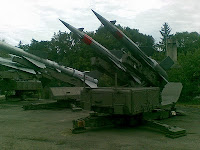There is a silver lining in the darkest cloud goes the old saying. So it is for Indian Armed Forces. Who are watching very closely the performance of the weapons being used in the Libyan campaign. This is significant because 4 out of 6 MMRCA contenders are showing off their prowess in war over Libyan Skies.
An IAF officer said they had learnt quite a few lessons by monitoring Iraq and Afghanistan, in the same way they are watching Libya roo, it is a part of their job and a byproduct of globalization.
“Many of the (weapons) platforms that are in the operations (in Libya) are the ones we are evaluating,” he added.We must remember to factor in the quality of opposition too the Libyan Airforce has promptly gone underground to save their aircrafts
Most of all, the Indian Air Force is following the bombing campaign by the US, UK, France and eight other countries because variants of four of the six aircraft that are competing for an estimated $12 billion Indian contract have been deployed by the coalition.
The Boeing (McDonnell Douglas)-made plane crashed near Benghazi on Monday night, an incident the US officially said was caused by a “mechanical fault”.
The Strike Eagle is not in the competition for the Indian order. But Boeing’s F/A-18 Super Hornet is. The Canadian Air Force has deployed an older version of the aircraft, the CA-18 Hornet for “Operation Mobile”, its name for the offensive in Libya that the US calls “Operation Odyssey Dawn”.
The bombing run over Libya is believed to have been begun by France’s Rafale aircraft (“Operation Harmattan”).
The Dassault Aviation-made plane was demonstrated at an airshow in Bangalore last month, as was the Super Hornet, the US (Lockheed Martin) F-16 Super Viper and European consortium EADS’ Eurofighter Typhoon.
The Rafales bombed a convoy of Muammar Gadaffi’s troops that was suspected to be headed towards Benghazi with the “Storm Shadow” stand-off missile, a weapon that can be fired at precise targets from more than 200km away. A mock-up of the “Storm Shadow” was also exhibited in Bangalore.
The Indian Air Force contract for 126 combat planes is specifically for a category described as “medium multi role” — meaning the aircraft have to demonstrate a capability for not only dogfights in the air but also for precise ground-attack — bombing specified targets.
The UK’s Royal Air Force and Spain have deployed the Eurofighter Typhoon for the operations in Libya. (The British call the offensive “Operation Ellamy”).
The US-made F-16 Fighting Falcon aircraft of the UAE armed forces — the closest version to Lockheed Martin’s India offering — has been deployed by the Arab conglomerate, which has also deployed a version of the Mirage 2000. The Indian Air Force has two squadrons of the Mirage 2000 in its inventory.
Ironically, Libya’s air defence weaponry is mostly of the same origin and vintage as India’s own, comprising mostly S-125 Pechora surface-to-air missiles (also identified as the SA3) that were supplied by the erstwhile Soviet Russia.




1 comment:
Drone attacks number in the hundreds lay waste all of Gaddafi's air power - probably SAM too. without loss of pilots! That means stealth capability is good along with precision target bonbing
Post a Comment